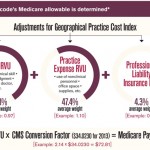Dedicated Work
Before becoming a RUC member, Dr. Barré held the position of RUC advisor trainee. “He learned a lot as a trainee, and we were delighted when he expressed a desire to continue on,” says Dr. Laing. “As I become more and more age-challenged, shall we say, it’s become increasingly important to have somebody who can go forward on the RUC because it’s a very detail-oriented process, and it takes a while to not only learn it, but also feel confident that you understand all the nuances of it.”
The committee meets three times per year to discuss and vote on payment code recommendations. For those meetings, which last four to five days each, members receive assigned subsets of payment codes to evaluate. They must gather information from societies and their surveys, practitioners and other sources and present concise but comprehensive assessments to the RUC for a vote, explains Ms. Chung. In this way, the RUC presents the CMS with fact-based consensus recommendations.
Despite the time commitment—up to 15 days in the RUC meetings, not to mention long hours learning about the broad range of physician services and procedures and writing code evaluations—Dr. Barré feels his decision to participate on the RUC is the right one. “I think it comes down to recognizing that somebody has to do it,” he says. “Somebody has to advocate for patient access and equitable patient care, and some of that comes down ultimately to making sure that the care can be sustainably delivered. And that means being at the table.”
Besides that, he remarks, “I get to be surrounded by leaders from all these other specialty societies. I am forming natural relationships with people from other specialties. These are people who have similar interests and are also interested in understanding how we can work together to accomplish shared goals.”
A Collective Voice
Dr. Laing has a similar perspective about serving on the RUC, which he described as “building the house of medicine.” He explains, “One reason to have rheumatology involved in the RUC is to help out with a large effort that benefits all of us: creating a system that appropriately values medical procedures and services. So, by agreeing to participate as a society, we’re basically saying we are willing to take our place in that altruistic effort.”
At the same time, participation also benefits the field of rheumatology, Dr. Barré says. Often, codes are shared across specialties, so although members do not vote on their own payment codes, they collaborate with others who also use rheumatology codes, examine different societies’ survey results, discuss codes with society advisors and help frame the collective views on rheumatology codes that are ultimately presented to the RUC for a vote. “These codes touch every single rheumatologist and therefore every single patient who enters the rheumatologist’s office, so we need to be represented on the RUC,” he says.

